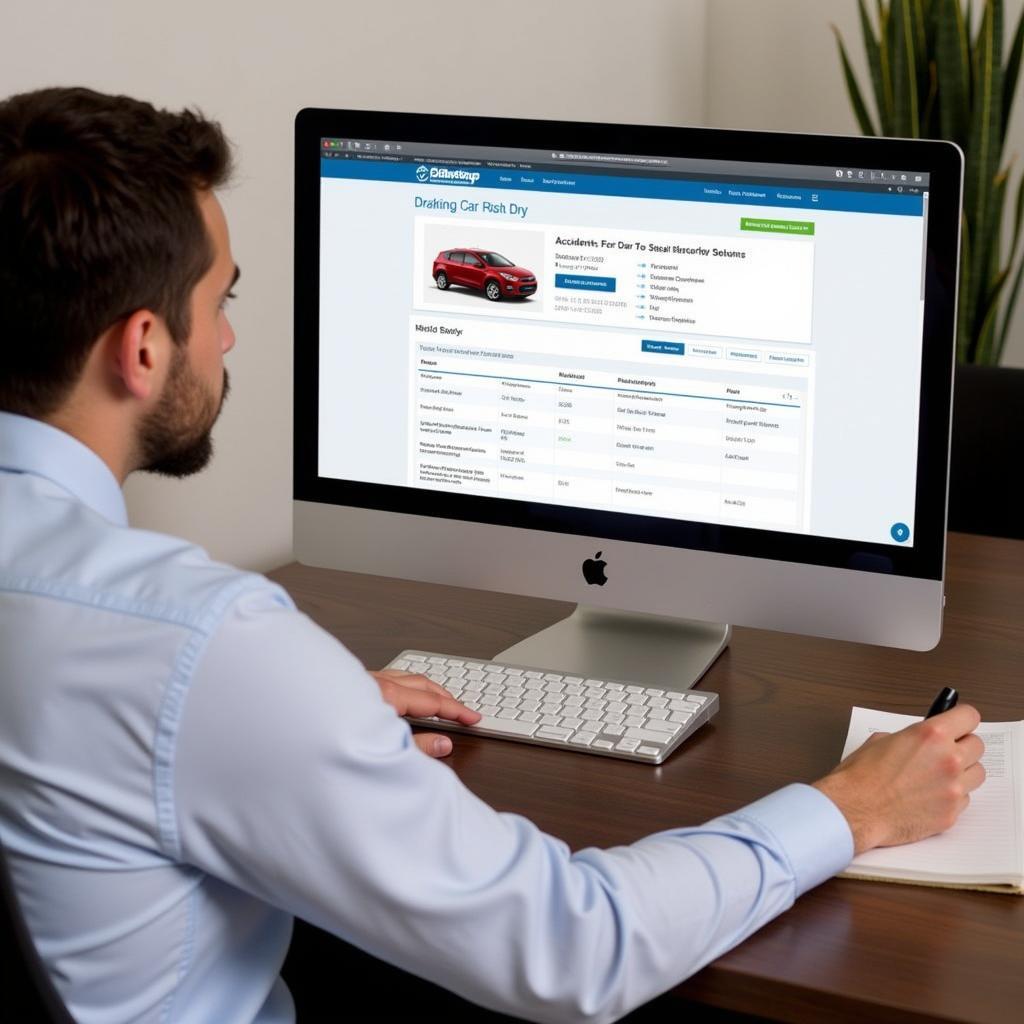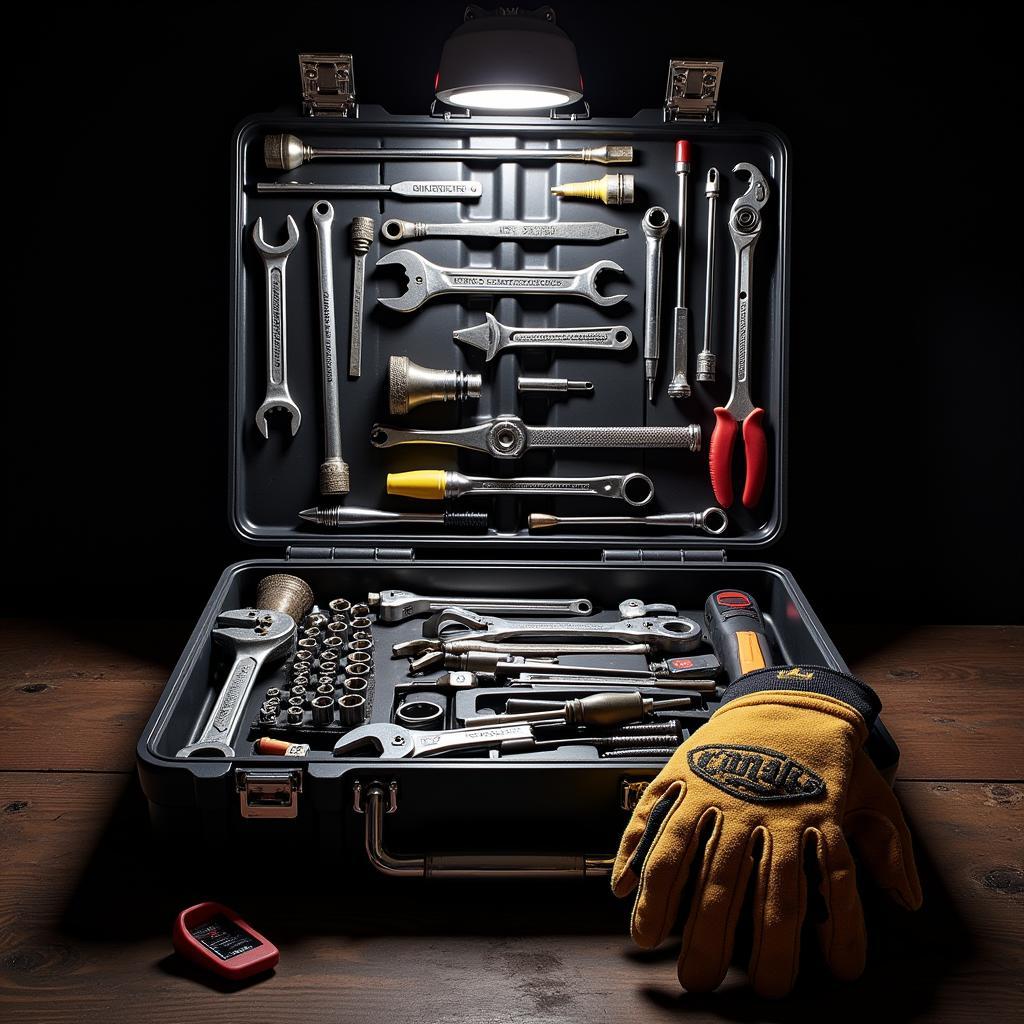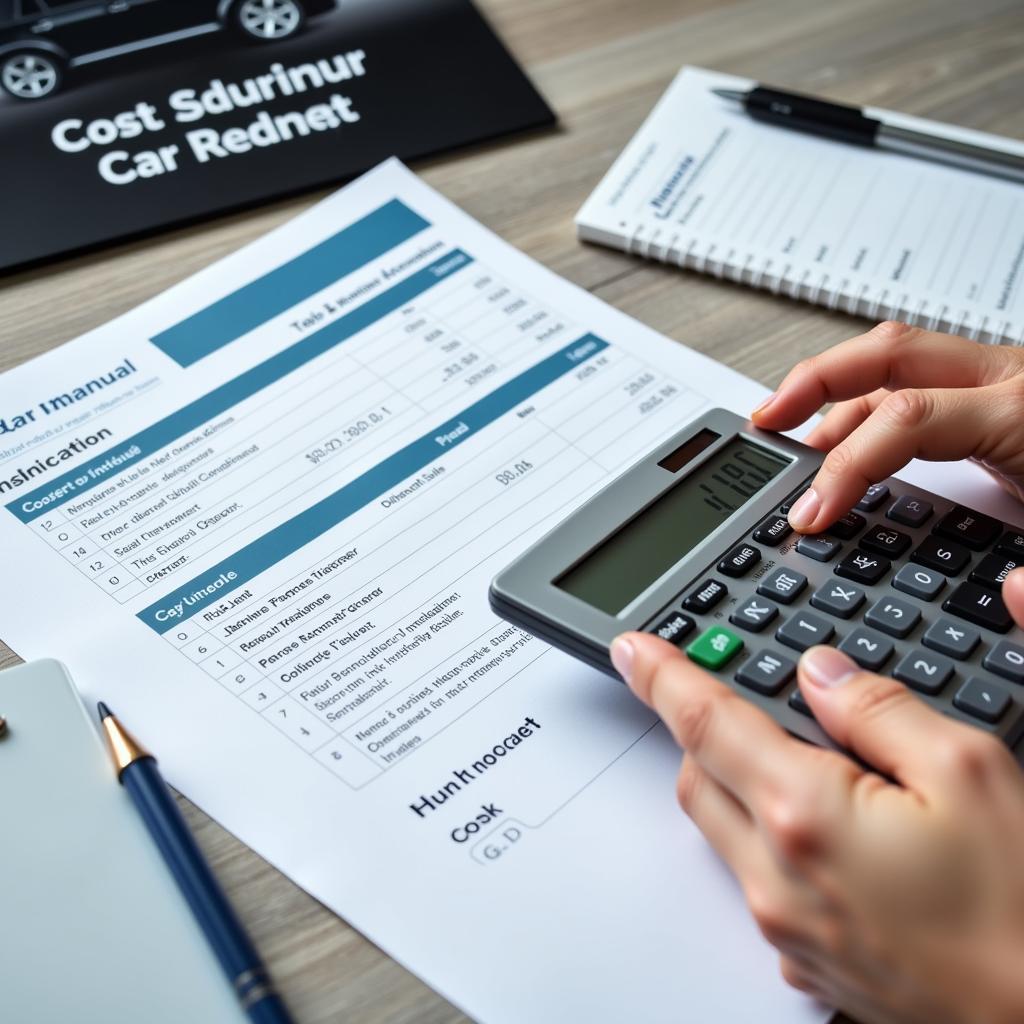Buying and fixing cars can be a rewarding experience, whether you’re looking for a personal project, a cost-effective way to get a new vehicle, or even a potential business venture. This guide will provide you with valuable insights and practical advice on how to navigate the process successfully.
Finding the Right Car to Buy and Fix
The first step in the buy and fix car process is finding the right vehicle. Research is key. Don’t rush into a purchase. Look for cars that are within your budget and mechanical skill level. A common mistake is overestimating your abilities and ending up with a project that’s too complex or expensive. Consider factors like the car’s age, mileage, and overall condition. Online marketplaces, classified ads, and even local auctions can be great places to start your search. Remember to check the vehicle’s history report for accidents, title issues, and maintenance records. A car with a salvage title might be cheaper, but it could also come with hidden problems.
 Checking Car History Report Before Buying
Checking Car History Report Before Buying
Essential Tools and Equipment for Fixing Cars
Once you’ve found a car, you’ll need the right tools to fix it. Having the proper equipment can save you time, money, and frustration. Basic tools like screwdrivers, wrenches, sockets, and a jack are essential. Investing in a good code reader can also be invaluable for diagnosing engine problems. As your skills develop, you might consider more specialized tools, like a welding machine or a diagnostic scanner. Remember, quality tools are a worthwhile investment. They’ll last longer and perform better than cheaper alternatives. Building a comprehensive tool collection over time can make the buy and fix process much more efficient.
 Essential Tools for Car Repair
Essential Tools for Car Repair
Similar to buying beat up cars and fixing them for profit, assessing the damage accurately is crucial.
Diagnosing Common Car Problems
Diagnosing car problems can be challenging, even for experienced mechanics. Start by identifying the symptoms. Is the engine making strange noises? Are there warning lights on the dashboard? Does the car feel sluggish or unresponsive? Once you’ve pinpointed the symptoms, you can begin to narrow down the potential causes. Online resources, repair manuals, and forums can be helpful for troubleshooting. Don’t hesitate to seek advice from experienced mechanics or car enthusiasts. They might have encountered similar issues and can offer valuable insights.
Step-by-Step Repair Guides
Many online resources offer step-by-step guides for common car repairs. These guides can be incredibly helpful, especially for beginners. They often include photos and videos that demonstrate the repair process in detail. While these guides can be a great starting point, remember that each car is unique. There might be slight variations depending on the make, model, and year of your vehicle. Always consult your car’s repair manual for specific instructions and torque specifications.
This information resonates with resources like fixed cars with salvage title for sale by providing valuable insights into the repair process.
Safety Precautions When Working on Cars
Working on cars can be dangerous if you don’t take the necessary safety precautions. Always wear safety glasses and gloves to protect yourself from flying debris and chemicals. Make sure the car is securely supported on jack stands before working underneath it. Never work on a hot engine. Allow it to cool down completely before starting any repairs. Proper ventilation is also crucial, especially when working with flammable materials or in enclosed spaces. By prioritizing safety, you can minimize the risk of accidents and injuries.
For finding suitable cars, consider resources like best place for fixer upper cars.
Budgeting and Cost Considerations
When buying and fixing cars, it’s essential to have a realistic budget. Estimate the cost of repairs before purchasing a vehicle. Factor in the price of parts, labor, and any specialized tools you might need. Unexpected costs can arise during the repair process, so it’s wise to have a contingency fund. Keeping track of your expenses can help you stay within your budget and avoid overspending.
Just as with people who fix cars, a solid understanding of the process is essential for success.
 Calculating Car Repair Costs
Calculating Car Repair Costs
Conclusion
Buying and fixing cars can be both challenging and rewarding. By following the advice in this guide and resources like buying fixing and selling cars, you can increase your chances of success. Remember to research thoroughly, invest in quality tools, and prioritize safety. With patience and persistence, you can transform a fixer-upper into a reliable and cost-effective vehicle. Contact AutoTipPro at +1 (641) 206-8880 or visit our office at 500 N St Mary’s St, San Antonio, TX 78205, United States for further assistance with your buy and fix car projects.




Leave a Reply